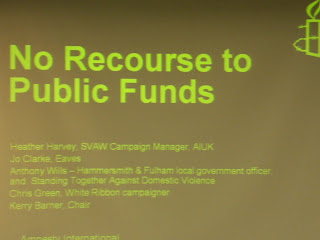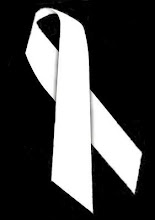
‘A woeful lack of representation’… (Left to right) Labour MPs and parliamentary candidates Meg Hillier, Stella Creasy, Joan Ruddock, Tessa Jowell, Harriet Harman and Diane Abbott. Photograph: John Stillwell/PA/PA
The increasingly presidential style of the UK general election campaign has edged senior women politicians out of the forefront of the political debate, shifting focus instead on to the wives of the three party leaders, a number of prominent female Labour MPs conceded today.
Women in all three main parties have been at the margins of the political campaign, with greater attention paid to the activities and outfits of the leaders' spouses than to the roles played by senior women politicians, in a shift described as a significant regression by campaigners for improved representation of women in parliament.
The shift in focus has been exacerbated by the increasing prominence that the leaders' debates are playing in the campaign, concentrating attention on the three male party leaders rather than a wider spectrum of politicians, and triggering an intensified interest in the supporting role played by their partners.
"As we watch this election, it is clear that women politicians are markedly absent. We have a lot of wives, but not many women MPs," said Kat Banyard, co-founder of UK Feminista and author of The Equality Illusion, a recent study of modern feminism. "All the main players are white men. The lack of female role models is really stark."
Ceri Goddard, chief executive of the Fawcett Society, which campaigns for greater equality between men and women, said: "There is still a woeful lack of senior representation of women in politics and that is reflected in the election campaign."
At an event yesterdaythis morning to celebrate the record number of women standing as Labour candidates, Tessa Jowell, Cabinet Office minister, acknowledged that traditional aspects of the campaign, such as press conferences, had been supplanted by the leaders' debates, shifting more attention to the male leaders, but she stressed that she and other women politicians still "feel at the forefront" of the campaign.
"This is the most activist-led, grassroots-led campaign that I have worked on, largely driven by the internet. Women MPs are all over the country getting votes."
Harriet Harman, deputy leader of the Labour party, said: "Politics has always been male-dominated – that's why we have much more work to do."
"There is a growing celebrity culture in this country," said Joan Ruddock, an undersecretary in the Department of Energy and Climate Change. "It is inevitable that the leaders' families are more prominent than a decade ago. The Obama election has played into that as well."
Defending the party's record, Harman said Labour had attracted many more women into parliament than the other two main parties, with three times more female MPs in the last parliament than all other parties put together – 94 women MPs, compared with 18 for the Conservatives and nine for the Lib Dems. In seats where Labour MPs are retiring, 53% of Labour candidates are women.
Diane Abbott, Labour MP for Hackney North and Stoke Newington, said that, when she first stood as a candidate in 1987, "Many people didn't believe that I could win because the notion of an MP was of a middle-aged white guy in a suit. Things really have moved on. If you raised subjects like work-life balance or childcare 20 years ago, people would say, 'But that's not really politics.' Now the party leaders are all talking about it. Things have progressed – perhaps not as much as I would have liked, but they have progressed."
Jowell argued that the number of policies benefiting women and children during Labour's administration was a reflection of the increased representation of women, citing Sure Start, better childcare facilities and child tax credits.
Campaigners such as Goddard believe the way politicians have tried to appeal to female voters marks a regression.
"There is a focus on women as mothers and only mothers, particularly as the polling is showing that middle-class mothers are a key voting group and all three parties are targeting them. This has had the unfortunate knock-on effect that much of the coverage of women in the campaign has been about women as mothers."
The Conservative party's drive to alter the male-dominated profile of its shadow cabinet has failed, according to a poll published in the Financial Times this week, in which most people questioned could not name a single female Tory MP. Theresa May, shadow work and pensions secretary, is a lone female figure in the Conservative campaign. But party officials point out that a third of its candidates are women, most in winnable seats.
"If the Conservatives have a majority of one we will have 60 female MPs in parliament," May said yesterday. "However, I realise we need to continue the process of getting more women involved in politics."
Banyard is despondent about the proportion of women MPs. "There was massive progress in 1997 when we saw the number of women MPs doubling. But that has ground to a halt and we only have six more women MPs today than we did in 1997," she said. "We have slipped to 73rd place in the world league table for women's representation as MPs."
About 20 years ago I was part of a small group of men who founded the White Ribbon Campaign – men working to end violence against women. It was one of the best things I've ever done. The campaign continues to operate both in Canada and many other countries, doing its best to make men aware that any kind of physical violence against women is completely unacceptable, full stop. There are no exceptions. The best-known of the founding members of the White Ribbon Campaign was Jack Layton and he has never tried to exploit his contribution for political gain, a rare example of integrity that I have long admired.







